
I am committed to nurturing the next generation of female leaders in technology and facilitating pathways for their success.
As a Digital Education Support Analyst, I provide assistance and guidance to individuals using digital educational tools and platforms. This includes troubleshooting technical issues, offering training sessions, and developing resources to enhance the digital learning experience.
What do I love about my role?
The opportunity to empower others in their educational journey through the effective use of technology.
How did I get here?
My fascination with education technology began during my time at Carnegie Mellon University in Qatar, where I pursued a Bachelor’s degree in Information Systems with a minor in Business Administration, and a concentration in UI/UX design. Following my passion, I crossed continents and found myself at The Harvard Graduate School of Education, where I pursued a Master’s degree in Technology, Innovation & Education.
Over the course of my academic journey, I’ve been exposed to cutting-edge educational technologies and pedagogical approaches, broadening my perspectives on education and its intersection with technology. Alongside my educational endeavours, I gained experience in student services and worked as an Applications Analyst at Qatar Foundation. More recently, I was entrusted with establishing an ICT department for an upcoming school and university.
My future aspirations
 I am driven to expand my role in mentoring and empowering young women within the tech industry. My experience as an alumni interviewer for Harvard has granted me a unique perspective, now finding myself on the opposite side of the table where I once sat. Moreover, being nominated for the ‘Everywoman’ awards in the Digital Star category has intensified my dedication to supporting and championing women in digital fields.
I am driven to expand my role in mentoring and empowering young women within the tech industry. My experience as an alumni interviewer for Harvard has granted me a unique perspective, now finding myself on the opposite side of the table where I once sat. Moreover, being nominated for the ‘Everywoman’ awards in the Digital Star category has intensified my dedication to supporting and championing women in digital fields.
I am determined to advance my expertise in educational technology and pursue leadership roles in this domain. I am enthusiastic about exploring opportunities for advanced training and certifications, which will deepen my understanding and enable me to make a more significant impact in the realm of digital education.
I would also love to be involved in the creation of internship programs tailored specifically for young women. These initiatives aim to provide them with invaluable opportunities for learning and growth in a supportive environment. Such programs not only offer practical skills and experience, but also foster a collaborative community where both mentors and interns can learn from each other. I am committed to nurturing the next generation of female leaders in technology and facilitating pathways for their success.
My influences
My parents have been the most influential and inspiring figures in both my career and personal life. They have always been my pillars of support, giving me the wings to fly and encouraging me to dream big. From a young age, they instilled in me the belief that nothing academically was ever off-limits, regardless of my gender. Their unwavering support and encouragement propelled me to pursue my passions and strive for excellence in all endeavors.
One of the most valuable lessons they imparted to me was the importance of continuous learning and self improvement. They always encouraged me to up skill myself and pursue further education, knowing that knowledge is the key to unlocking new opportunities and achieving success. Their belief in my potential and their dedication to my personal and professional growth have been instrumental in shaping the person I am today.
Maintaining a work-life balance
 Creating a work-life balance is crucial for my well-being, and I prioritise it by taking life outside work as seriously as in work. I plan my week and weekends in advance, ensuring I have events and activities to look forward to. One activity that fulfills and energises me is networking. Being new to London, I thoroughly enjoy meeting new people and exploring the vibrant restaurant scene in the city.
Creating a work-life balance is crucial for my well-being, and I prioritise it by taking life outside work as seriously as in work. I plan my week and weekends in advance, ensuring I have events and activities to look forward to. One activity that fulfills and energises me is networking. Being new to London, I thoroughly enjoy meeting new people and exploring the vibrant restaurant scene in the city.
Whether it’s attending Harvard alumni socials or participating in Ramadan meetups, London offers a plethora of opportunities for social engagement. These networking events not only allow me to expand my professional circle but also enable me to immerse myself in the rich cultural diversity of the city. By engaging in activities that bring me joy and fulfillment, I find that I can recharge and maintain a healthy work-life balance.
My advice
One invaluable piece of advice for women entering the tech industry is to prioritise education, recognising that knowledge is a powerful asset that can’t be taken away. Give yourself due credit for your work, and don’t shy away from occupying the space you deserve in any room. Embrace the confidence to contribute your ideas and skills and when you do so, don’t forget to portray kindness and empathy to other women who were once in your shoes.
Bonus material
Haneen is a finalist in the Digital Star category at the 2024 everywoman in tech awards.
Want to join ICT?
We have some great and diverse roles in ICT, and we are always on the look out for the best tech talent.
If you want to join our team check out our current job vacancies.
Check out our Equality, Diversity and Inclusion pages and find out about or activities to remove barriers and create a great place to work.
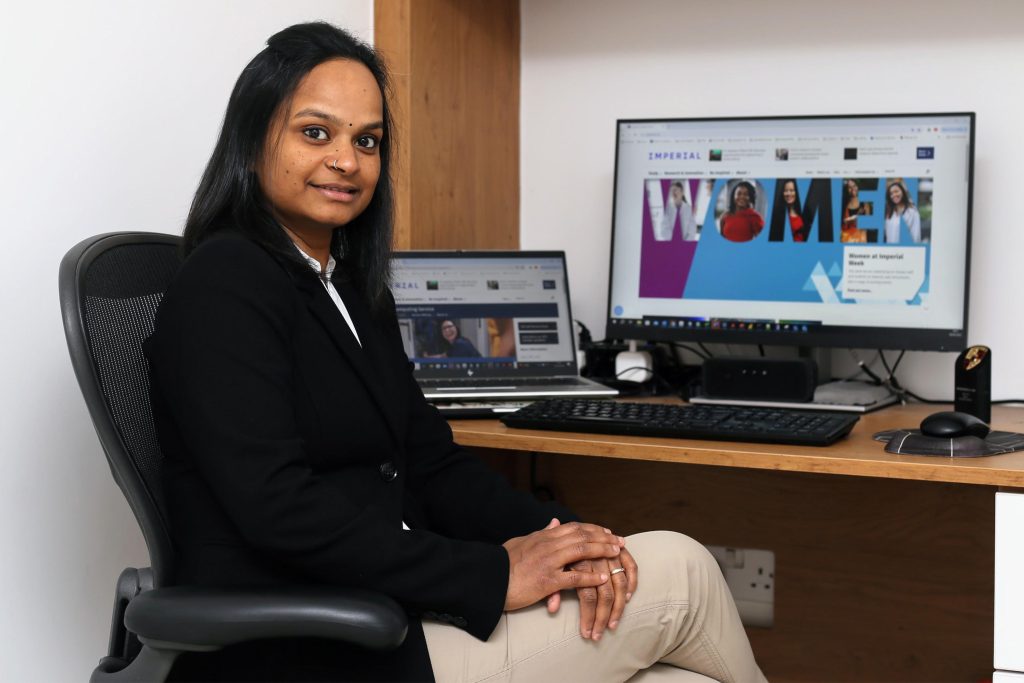
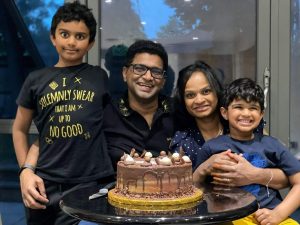 If I have learnt valuable life lessons from the most experienced people in my life, I was reminded about the basics of life by my younger son, who once said to me at 3 years old, when he noticed I was getting anxious because of an issue – “Mummy, take a deep breath and relax, you will be fine!”
If I have learnt valuable life lessons from the most experienced people in my life, I was reminded about the basics of life by my younger son, who once said to me at 3 years old, when he noticed I was getting anxious because of an issue – “Mummy, take a deep breath and relax, you will be fine!”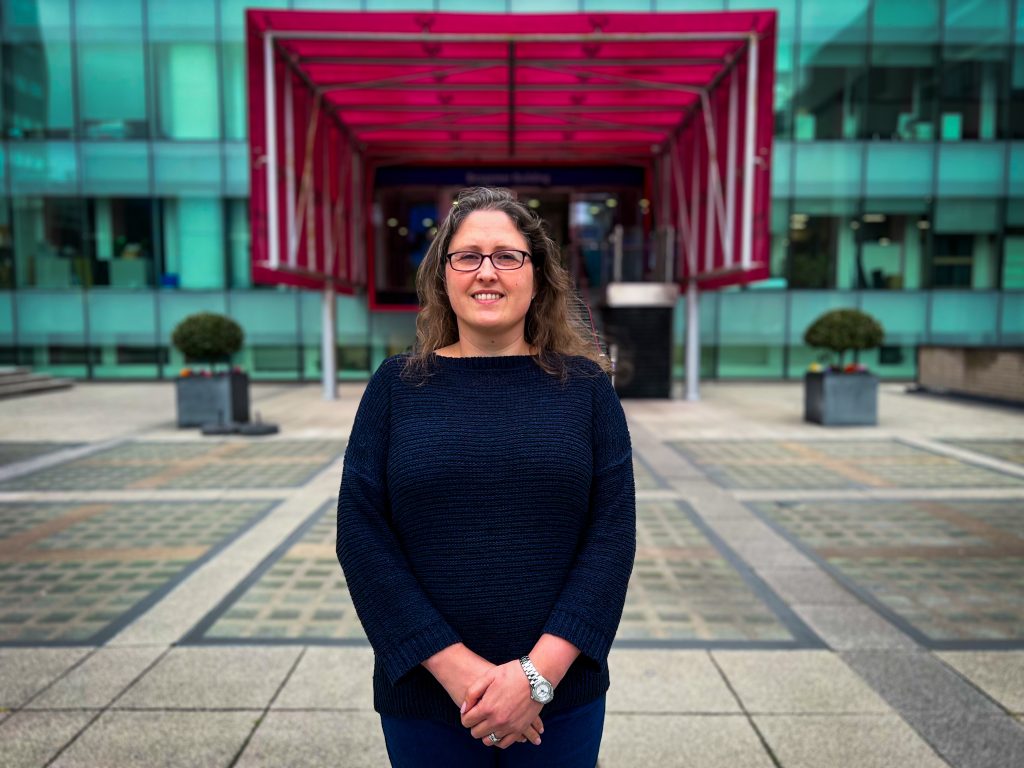
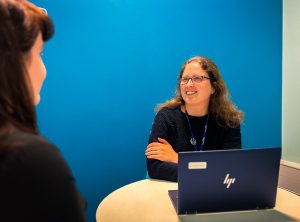 I came from a customer services background, having worked in and managed centres in various industries. I was seconded to an ICT project and saw the work of a business analyst and realised I was fascinated by how business teams and ICT have to adapt to work together to achieve the right outcomes, and how hard that is to get right!
I came from a customer services background, having worked in and managed centres in various industries. I was seconded to an ICT project and saw the work of a business analyst and realised I was fascinated by how business teams and ICT have to adapt to work together to achieve the right outcomes, and how hard that is to get right! I’m interested in lots of things and as part of my midlife crisis I have recently taken a drawing class, tried stand-up comedy, joined a choir, and started doing fitness classes in quite a serious way. When I’m on campus if I’m not in the office you’ll probably find me poking around in the Abdus Salam Library – it’s an amazing perk to have one within such easy reach. So the same scattergun approach applies in both my personal life and career!
I’m interested in lots of things and as part of my midlife crisis I have recently taken a drawing class, tried stand-up comedy, joined a choir, and started doing fitness classes in quite a serious way. When I’m on campus if I’m not in the office you’ll probably find me poking around in the Abdus Salam Library – it’s an amazing perk to have one within such easy reach. So the same scattergun approach applies in both my personal life and career!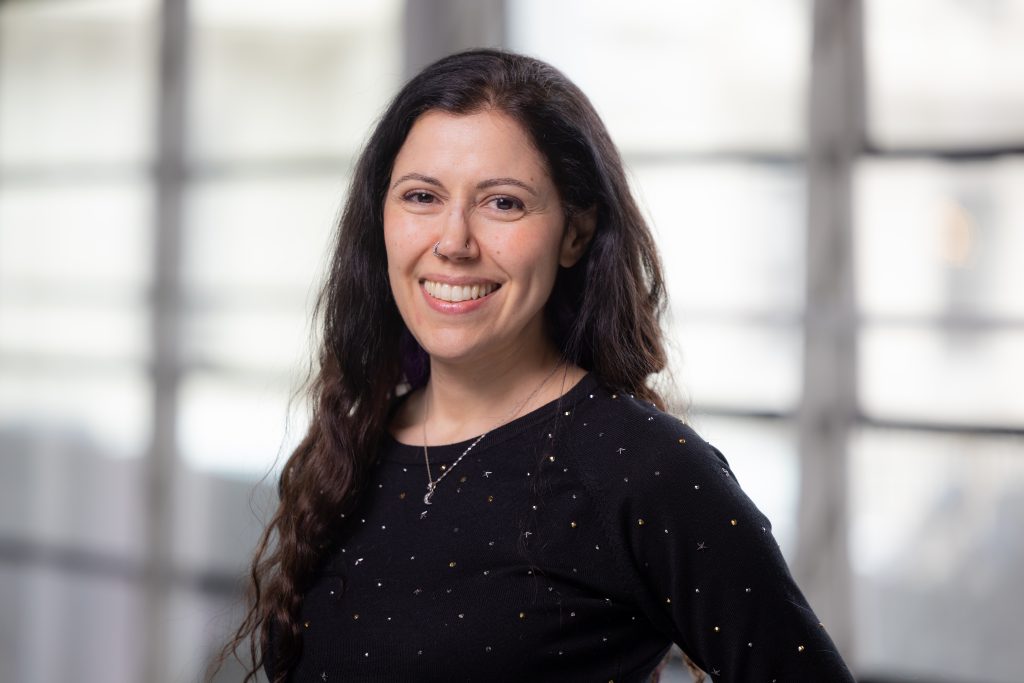
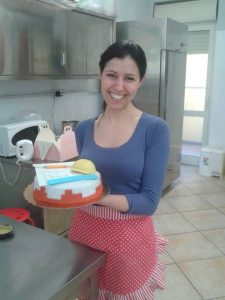
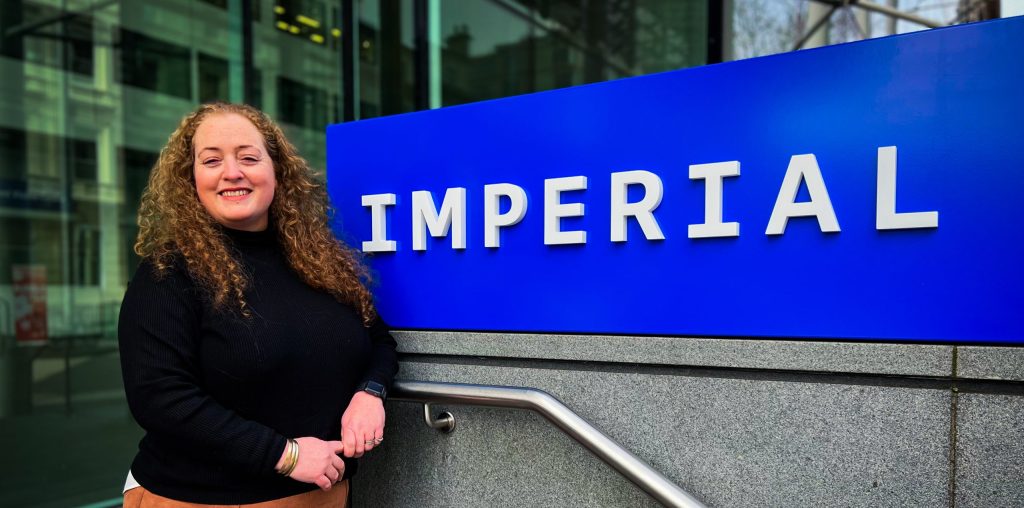

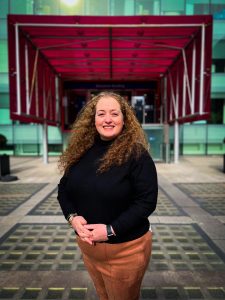 I find it hard to be idle so I enjoy a number of hobbies – some would say too many! I originally trained as a chef, and although having to cook for my husband and three children means it can feel more like a chore, I still love baking and find the routine and process relaxing,delicious and not at all disrupted by listening to true crime podcasts!
I find it hard to be idle so I enjoy a number of hobbies – some would say too many! I originally trained as a chef, and although having to cook for my husband and three children means it can feel more like a chore, I still love baking and find the routine and process relaxing,delicious and not at all disrupted by listening to true crime podcasts!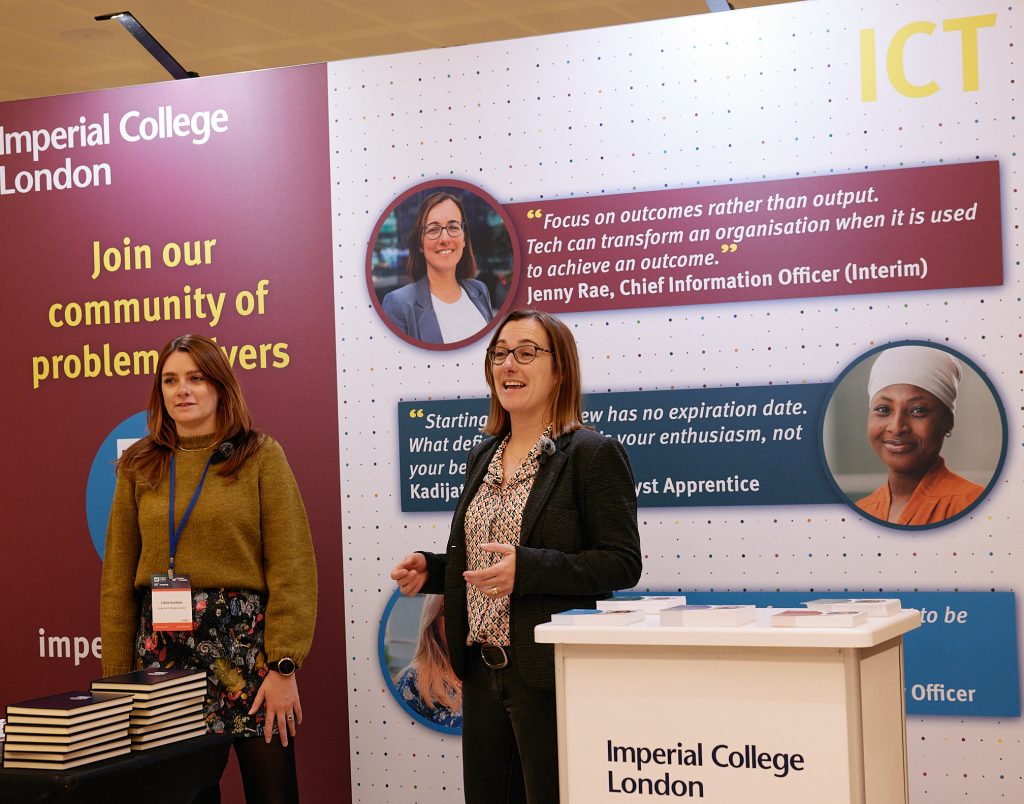
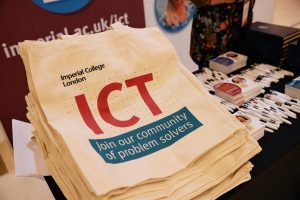
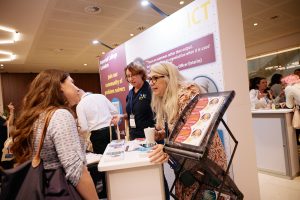
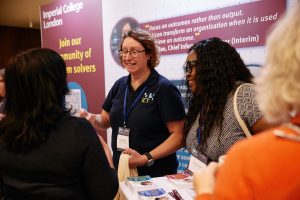
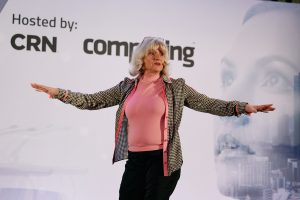
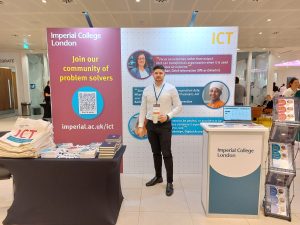
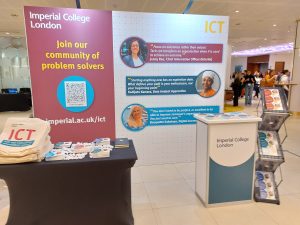
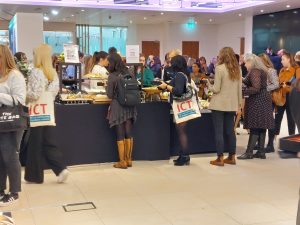
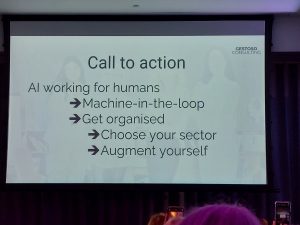
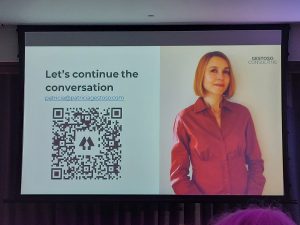
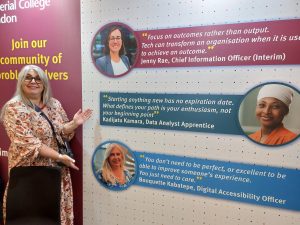
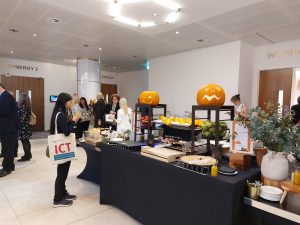
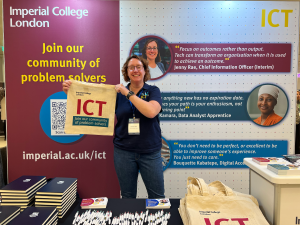
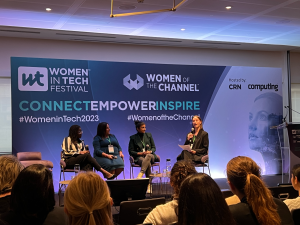
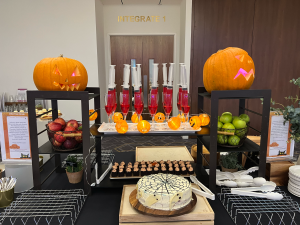
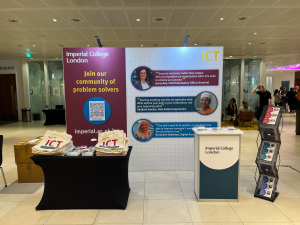
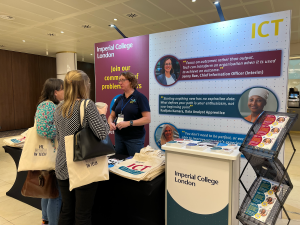
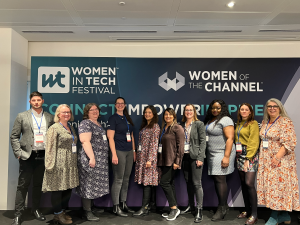
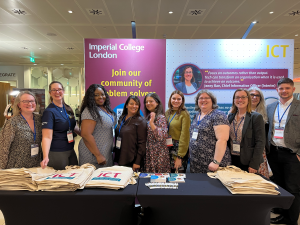
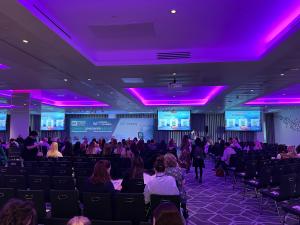
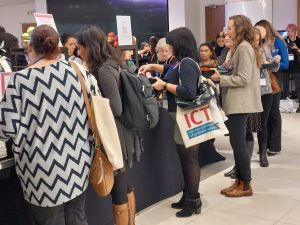
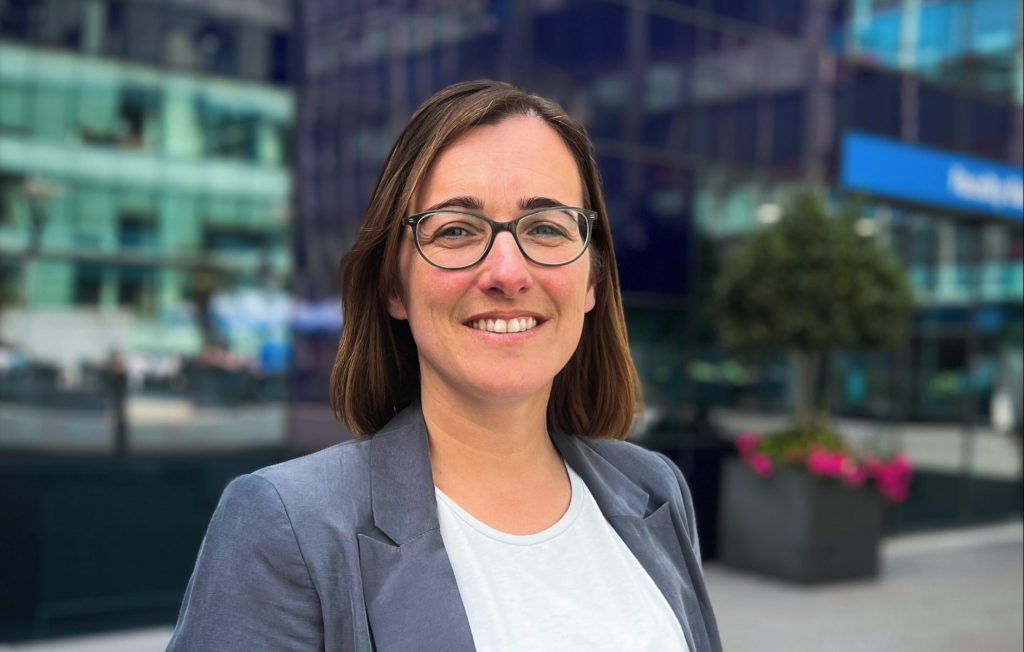
 Prior to this, I spent a large part of my career in the telecoms industry working for Vodafone, BT and OneWeb in a variety of product management and business transformation roles. I have fifteen years’ experience in product management and business transformation, and have worked for FTSE companies in senior positions, but I also have experience working in the start-up world, which has given me a greater understanding of differing organisational structures, values and their customers’ needs.
Prior to this, I spent a large part of my career in the telecoms industry working for Vodafone, BT and OneWeb in a variety of product management and business transformation roles. I have fifteen years’ experience in product management and business transformation, and have worked for FTSE companies in senior positions, but I also have experience working in the start-up world, which has given me a greater understanding of differing organisational structures, values and their customers’ needs.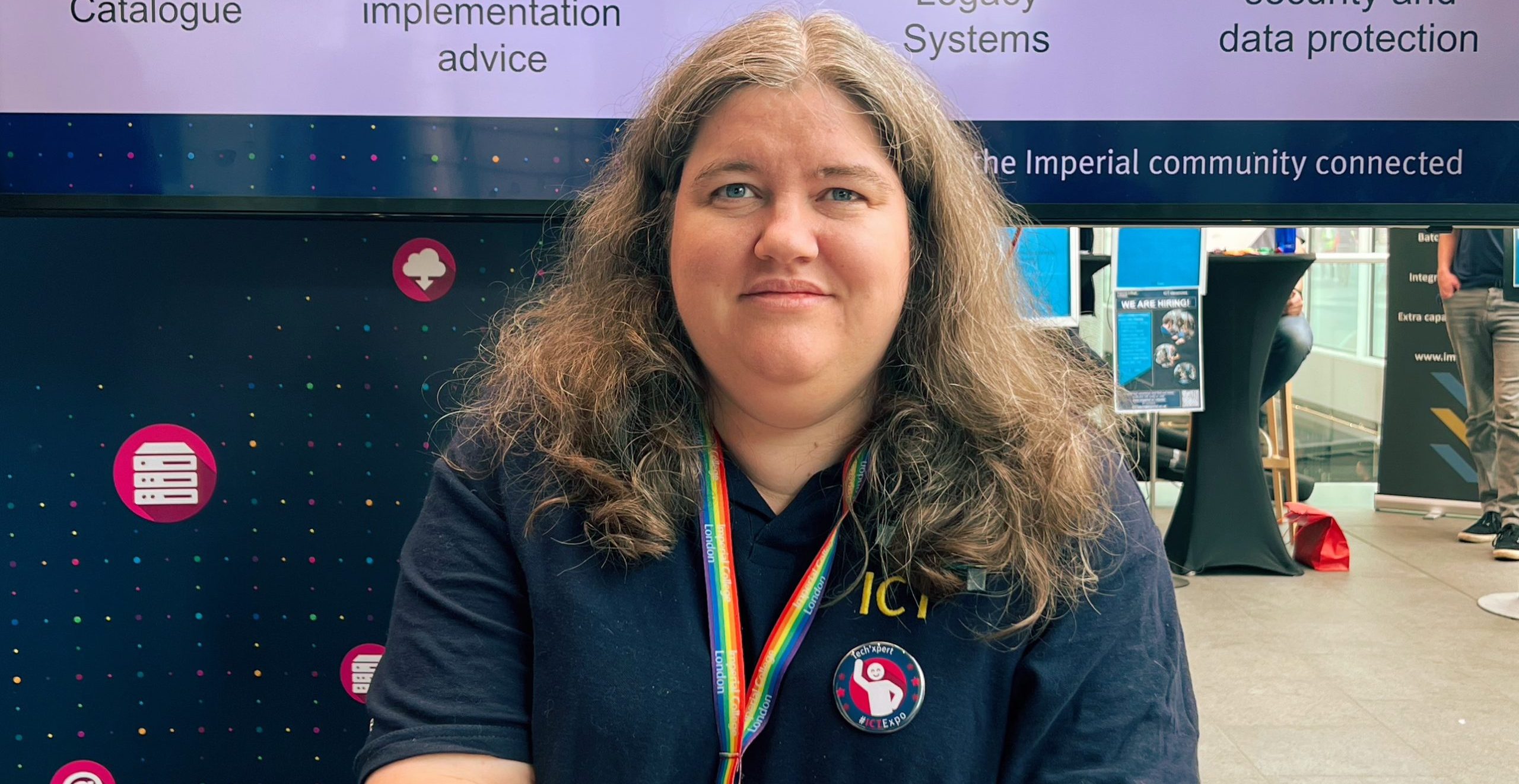
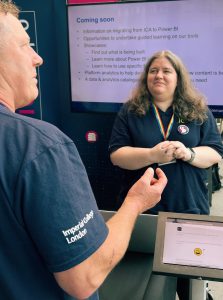 For someone who holds degrees in cultural studies I came to analytics through an unusual career route! A summer job in a space planning role at a major supermarket taught me a range of skills with spreadsheets that I put into good, and enthusiastic use, when I set out on my career in higher education. My passion for this type of work soon turned into colleagues saying, ‘Gemma likes spreadsheets, let’s give her this data task’, and this became my primary role. From there on I worked with various datasets including; university data, surveys, and longitudinal studies. I started combining data and project management work, and then progressed to enjoy working in business analysis.
For someone who holds degrees in cultural studies I came to analytics through an unusual career route! A summer job in a space planning role at a major supermarket taught me a range of skills with spreadsheets that I put into good, and enthusiastic use, when I set out on my career in higher education. My passion for this type of work soon turned into colleagues saying, ‘Gemma likes spreadsheets, let’s give her this data task’, and this became my primary role. From there on I worked with various datasets including; university data, surveys, and longitudinal studies. I started combining data and project management work, and then progressed to enjoy working in business analysis.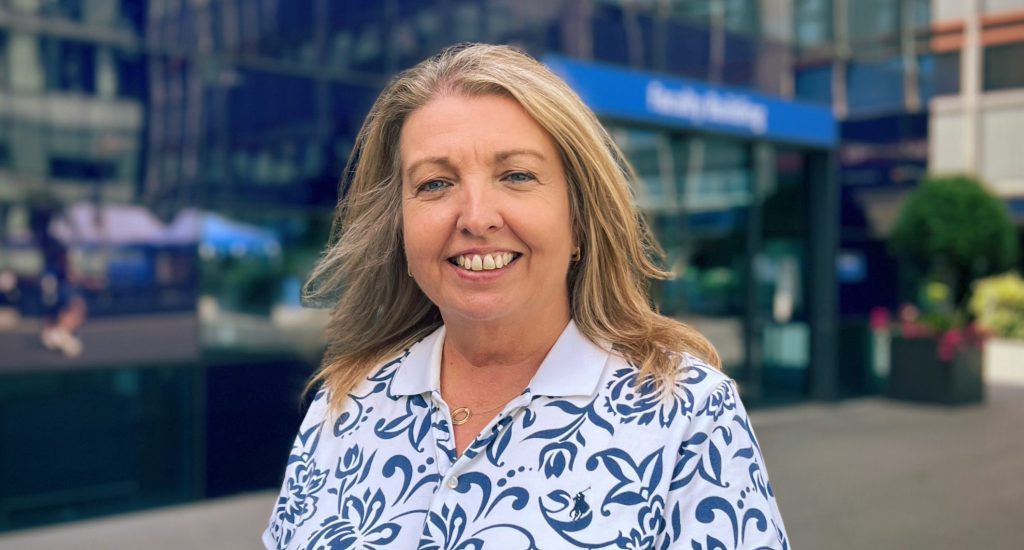
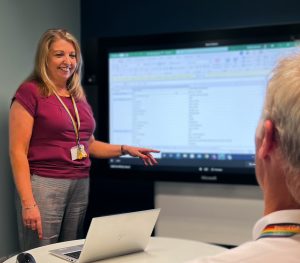 I am currently Head of HR and Finance Product Line and I have been at Imperial for four years already! It’s exciting to be working with teams on a business transformation programme, working to transform business areas that I support.
I am currently Head of HR and Finance Product Line and I have been at Imperial for four years already! It’s exciting to be working with teams on a business transformation programme, working to transform business areas that I support. I am motivated to continue my career in digital and technology, in roles that contribute to making a positive difference, add value and let me grow as an individual.
I am motivated to continue my career in digital and technology, in roles that contribute to making a positive difference, add value and let me grow as an individual.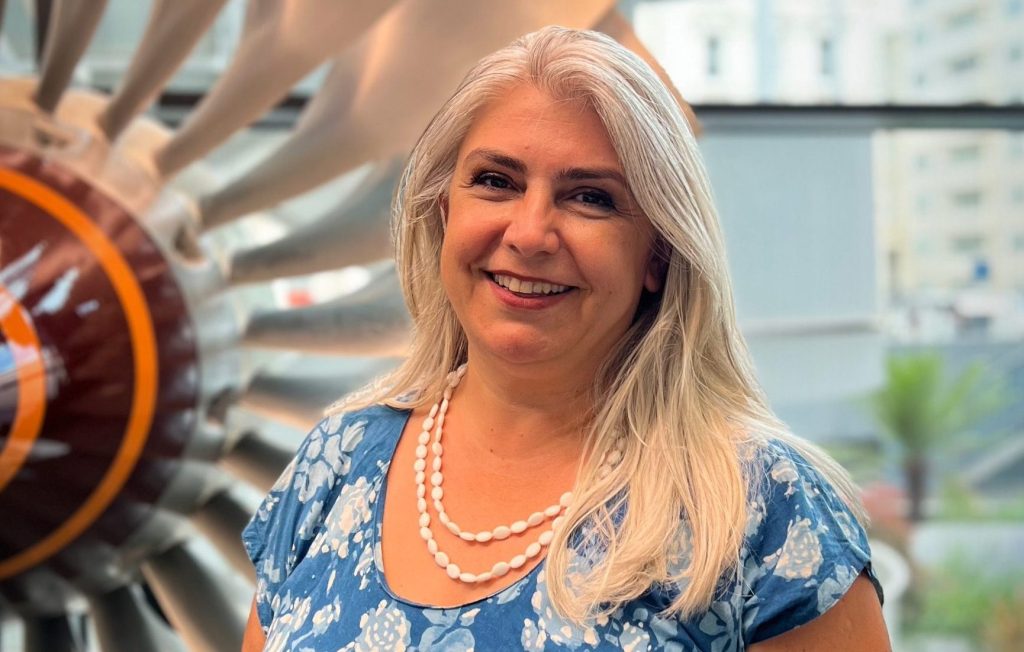
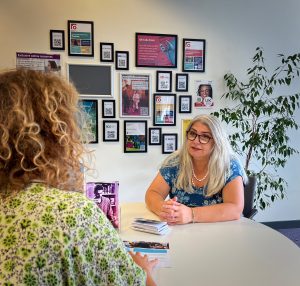 There is nothing more motivating and fulfilling for me than my current role as Digital Accessibility Officer. I truly wake up every day with a huge drive to continue working towards creating a more accessible environment for all.
There is nothing more motivating and fulfilling for me than my current role as Digital Accessibility Officer. I truly wake up every day with a huge drive to continue working towards creating a more accessible environment for all.